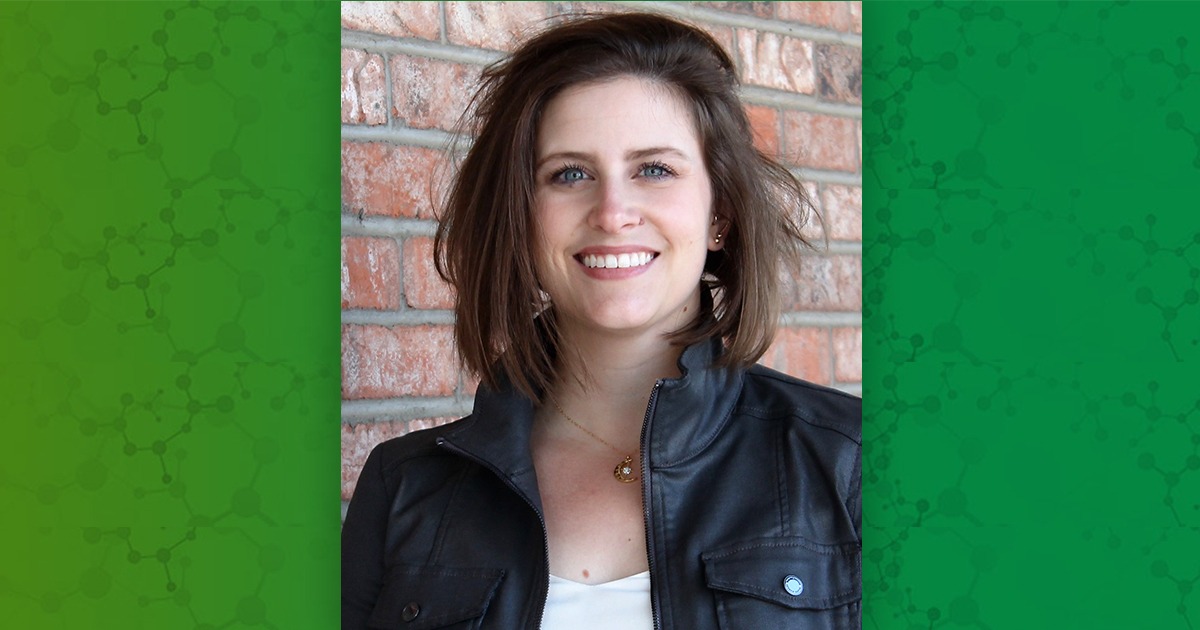During her NIEHS Research Ethics Seminar on May 18, Melanie Jeske, Ph.D., sought to change the conversation on ethics in science, engineering, technology, and mathematics (STEM).
Her presentation was titled “The Rise and Fall of Elizabeth Holmes and Theranos: Lessons for Scientific Ethics, Biotechnological Innovation, and Entrepreneurship.” Jeske made the case that the idea of ethics has been distorted in STEM. Researchers and practitioners, she argued, usually view violations as individual bad-actor problems rather than structural issues.
Jeske is a sociologist of science, medicine, and technology who focuses on the ethics of emerging technologies. She recently completed her Ph.D. at the University of California, San Francisco and will soon join the University of Chicago as a postdoctoral fellow at the Institute on the Formation of Knowledge.
Theranos fraud
The young and charismatic Holmes started a business with a mission to dramatically improve individuals’ ability to assess their health. She planned to develop a device that could run hundreds of diagnostic tests using only a few drops of blood. However, the company was unable to make the device work.
Holmes lied to investors, the public, and even her own employees to buy time to fix the device’s problems. Eventually, her lies came to light and she was charged with multiple counts of fraud and conspiracy.
While studying scientists and engineers working with microfluidic devices, similar to the one Holmes tried to create, Jeske became interested in the ethics of the Theranos case.
NIEHS Bioethicist David Resnik, J.D., Ph.D., hosted Jeske’s talk. A 2020 paper she wrote on Theranos caught his attention. According to Resnik, the case has important implications.
“Biomedical research and product development must meet the highest standards of rigorous science and ethics so that the public can have access to reliable and trustworthy medical products,” he explained.
Changing landscape
Many think the main lesson from the Theranos case is that Holmes was a bad actor, Jeske noted. But that distracts from broader issues regarding how researchers conduct and commercialize their work today, she suggested.
“Academic researchers are surrounded by success stories, where technologies developed in laboratories achieve broad impact through commercial success,” Jeske told attendees.
She noted that some institutions even provide training in entrepreneurship and offer support for commercialization. According to Jeske, this creates fertile ground for conflicts of interest, as researchers may feel pressured to produce marketable results.
Making matters worse, Jeske explained, is the tendency in STEM fields to think ethics problems only occur when a bad actor violates norms. She suggested that the norms are really the problem. It is common to treat ethics as simply a box to check, and as a personal matter instead of a field-wide issue.
Also, Jeske said, “Many scientists and engineers think their work is morally neutral or good. This implies codes of ethics aren’t necessary.”
This view of ethics begins early, in university classrooms and laboratories. Jeske pointed to the habit in STEM education to push ethics discussions into a single “ethics week,” or into separate courses. This sidelining sends the message to future scientists that ethics is just one more administrative task to complete.
Integrating ethics
Jeske said that the Theranos case offers three lessons for researchers and the public. First, people should stop treating Theranos and Elizabeth Holmes as exceptional cases. Second, everyday scientists and engineers face ethical choices, whether they are conducting mundane or revolutionary research. Third, ethical crises are preventable when people recognize ethics are an essential and structural part of research practice.
Although solutions to the structural problems are straightforward, implementing them is complicated, according to Jeske. Individuals and institutions will have to change their thinking and habits to prioritize ethics.
“The first solution revolves around revamping ethics education,” she explained. “It needs to attend to the new ways of doing research and the research landscape, in which industry involvement is ubiquitous. If we want ethics to be understood as a central part of practice, this needs to be instilled early in the training of young scientists and engineers,” noted Jeske.
“Intervention for later career researchers is different,” she said. “It’s more about meaningful partnerships, in which experts in different areas are engaging with each other on an equal playing field.”
She concluded that it is critical to engage ethics experts and social scientists early in the development of new technologies and to treat their guidance as an integral part of the research process.
Citation: Jeske M. 2020. Lessons from Theranos: Changing narratives of individual ethics in science and engineering. Engaging Science, Technology & Society 6:306–311.
(Lee Cannon is a contract writer for the NIEHS Office of Communications and Public Liaison.)
Source link
factor.niehs.nih.gov

